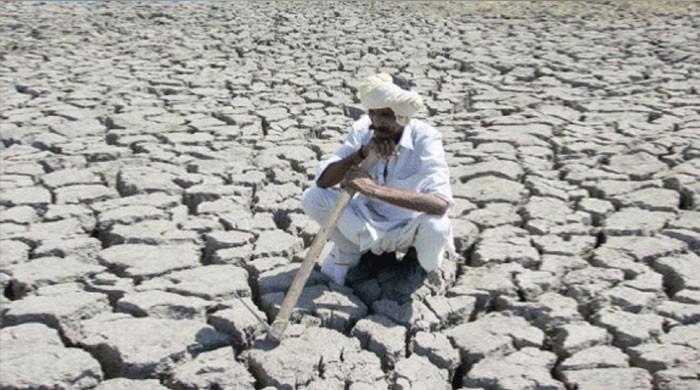“The primary objective of the PTI government’s ten billion tree tsunami project is to safeguard our generations from the effects of climate change,” says Prime Minister Imran Khan on 15 March, while launching the Olive Plantation drive in Nowshera district. However, Pakistan Met Office has warned that the country this year received much less rainfall in January and February as compared to previous years, which may lead the nation towards serious agricultural devastation and ultimately severe food insecurity and drought this year. Obviously the effects of climate change is already before the government to overcome immediately.
Water Scarcity
According to the Met Office data countrywide rain in January was 59% below the normal, indicating the probable impact of climate change. This drastic decrease was especially reported from Sindh, Balochistan and KP, which the Met Office termed a trend ‘unusual’, resulting in changing weather patterns, water scarcity, low agriculture yields and serious climate’s impact on the livelihoods of millions of people in Pakistan.
Pakistan is already highly vulnerable to climate change impacts, stemming from its dependency on climate-sensitive sectors, such as agriculture, water, and natural resources. Various studies in recent years have found the country’s climate becoming increasingly uncertain, resulting in frequent and devastating flooding in some regions and droughts in others, glacier melts, and higher temperatures.
Agricultural Devastation
Food security is determined by the availability of sufficient food supplies and citizen’s ability to access it. However the above factors, coupled with the reduction in water availability have been contributing to shortfalls in crop production. As for future challenges, crop-growth simulation studies estimate that the reduction in water availability coupled with the increase in temperature will cause agricultural productivity to drop by 8 to 10% by the year 2040 in Pakistan. Furthermore, a 6% decrease in wheat yield and a 15 to 18% decrease in fine-grain basmati rice is also anticipated by 2080.
Climatic changes have been causing certain features involved in crop growth such as soil moisture and temperature to exceed the normal thresholds. The rise in average temperatures has been shortening the length of the crop growth cycles, thus forcing their early maturity. In addition, the threat of locusts has been classified as an outcome of changing climatic conditions.
Implication of Covid 19 Pandemic
The ongoing Coronavirus pandemic impacts are aggravating the food situation even further. According to a study by the Food and Agriculture Organization of the United Nations in collaboration with World Food Program in August 2020, titling “Rapid Assessment: Possible Impact of COVID-19 on Livelihoods, Food Security, Nutrition and Agricultural Supply Chain in Pakistan”, an estimated 125 million people in Pakistan are expected to be thrown below the poverty line due to the global economic shock and the lockdowns. The report clearly states: “The restrictions on movement of goods and people and lockdown are likely to cause adverse impacts on livelihood and food and nutrition security of people if not accompanied by well thought policy measures.”
By
Editorial, Infocus


